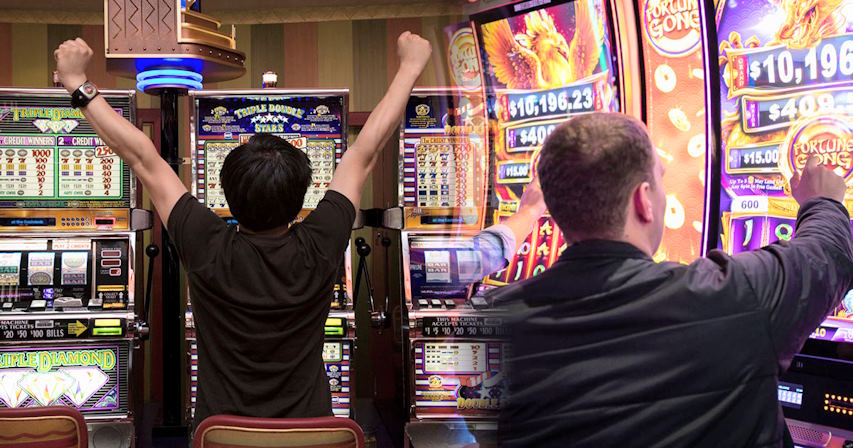Slot machines, with their flashing lights and enticing sounds, have become synonymous with the allure of casinos. However, beneath their seemingly innocent façade lies a complex web of psychological mechanisms that make them highly addictive. This article delves into the psychology of slot machines, unraveling the intricate tricks they employ to captivate players, exploring the role of social interaction in fueling addiction, and shedding light on how slot machines exploit cognitive biases to maintain an iron grip on players’ attention.
Unraveling the Psychological Tricks Employed by Slot Machines
Slot machines are carefully designed to trigger specific psychological responses that keep players engaged. This section uncovers the psychological tricks at play, such as the use of near-misses, visual and auditory stimuli, and variable reward schedules. By understanding how these tricks manipulate the brain’s reward system, we gain insight into why players find it challenging to resist the allure of slot machines.

Exploring the Role of Social Interaction in Slot Machine Addiction
Beyond the individual experience, social interaction plays a significant role in the addiction potential of slot machines. This segment examines how the presence of other players, celebratory sounds, and communal experiences contribute to the addictive nature of slots. By tapping into the human desire for connection and shared excitement, slot machines create a sense of community that intensifies the overall experience.

Slot Machines Exploit Cognitive Biases to Keep Players Hooked
Cognitive biases are central to the addictive power of slot machines. This portion delves into how slot machines exploit cognitive biases such as the Gambler’s Fallacy and the Illusion of Control. By aligning with these biases, slot machines create an environment where players feel a false sense of influence over outcomes, leading to continued play and heightened addiction risk.
The psychology of slot machines reveals a sophisticated blend of sensory manipulation, social dynamics, and cognitive exploitation. As we delve into the mechanisms that underlie their addictive nature, we recognize the power of these machines to hijack human psychology and lead to compulsive behaviors.







